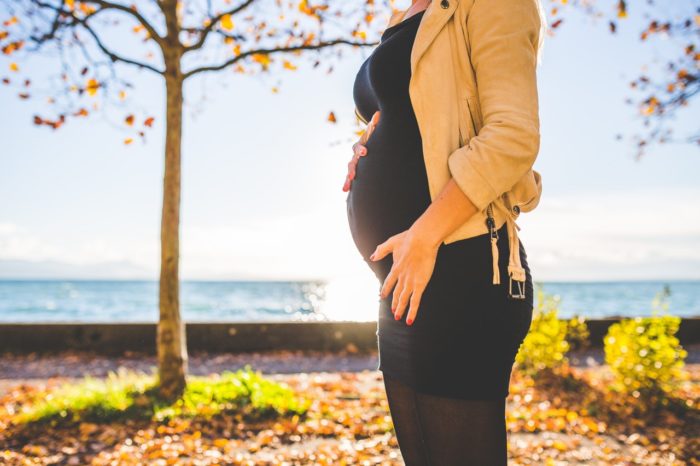How to Increase Chances of Conceiving
Pregnancy can be a wonderful thing, but not every body is naturally inclined to produce a child. It can often be difficult for women to get pregnant because of underlying conditions. This can be extremely frustrating if you and your partner are actively trying and still unaware of the root cause. Luckily, there are certain steps you can take to help increase your chances of conceiving. Fertility can be optimized, but if you are experiencing great difficulty conceiving, it can be a good time to contact your physician.

Know Your Menstrual Cycle
Possibly the most important thing to know during your conceiving journey is your menstrual cycle. Knowing how far along you are in your cycle is imperative if you want to optimize fertility. Monitoring your period should take place as soon as you want to conceive. A lot of women are semi-regular with their menstrual cycle, which means tracking this information allows you to predict when you are most “fertile” or ovulating. It is difficult to pinpoint the exact date of ovulation, but knowing the general week can greatly increase your chances of pregnancy. Sperm can last in the body for up to five days, but eggs are only fertile for less than a day after ovulation which is why a “fertile window” of roughly a week is the best time to attempt conceiving. Knowing your “fertile window” will substantially increase the chances of conceiving.
Ovulation occurs roughly two weeks before the first day of your period, but women with irregular cycles can find great difficulty in determining their cycle length. An easy way to take the guesswork out of the equation is through the use of an at-home ovulation kit. The kit will test for the hormone emitted during ovulation week. You and your partner can then more effectively attempt conceiving during the appropriate week.
Have Sex (Regularly!)
It is important to have sex during the “fertile window” in order to best increase the chances of ovulation. Most windows last from 6-7 days, with the ending day being the day of ovulation. There are applications available for couples to use who are trying to conceive. Most research shows that having sex every other day during your fertile window is the best way to get pregnant. There was no significant data that said having sex every day would increase the chance of fertilization. In addition, couples should also have sex outside of the fertility window to lower stress and add intimacy to their relationship. Constraining sex to the fertility window can add additional pressure to perform and render sex a tool for conception.
Have a Healthy Routine

Working out regularly is good for your mood, health, and chances of conception. People who work out more regularly are less likely to be overweight or obese. Being overweight can make conceiving extremely difficult. Practicing healthy habits reduces the chances of infertility. Obese women are half as likely to get pregnant as a woman of healthy weight. This is because excess fat produces excess estrogen, and overproduction of estrogen has been shown to affect ovulation. Being underweight can also make it difficult to become pregnant.
Take Vitamins and Eat Healthy
There is no magic vitamin or food that will make you pregnant but having a variety of healthy whole foods will best prepare you for conceiving. Conceiving a child is strenuous on the body, as is carrying one, so eating a healthy and full diet will also greatly help in the long run. If you know that you are deficient in certain nutrients, be sure to take the appropriate vitamins as well. Consult a physician if you become pregnant and are unsure if your vitamins and diet are safe for your child.
Be Aware of Possible Issues and Illnesses
There are many conditions that make pregnancy difficult. Being aware of the issues or illnesses that can cause issues with conceiving is the first step to addressing them. Asking a physician for help is the best way to determine the underlying problem.
A common issue for conceiving mothers is age. This goes for both parents. When women and men age, their chances of conceiving decline, as does the quality of their sperm and egg. Women have fewer eggs as they age, and the quality/quantity of eggs takes a dive after 40. There is also an increase in health problems for the mother. Conceiving earlier (mids 20s-30) or freezing high-quality eggs is a great way to combat the effects of aging on conceiving.

Hormones are also another common issue for conceiving mothers. Your body needs to coordinate well in order to conceive. Some women have unbalanced hormones, either naturally or through their lifestyle, and turn to bio-identical hormone replacement therapy. This type of therapy will artificially replicate the hormones our body needs to be at its most natural state. These hormones are typically derived from plant estrogens.
